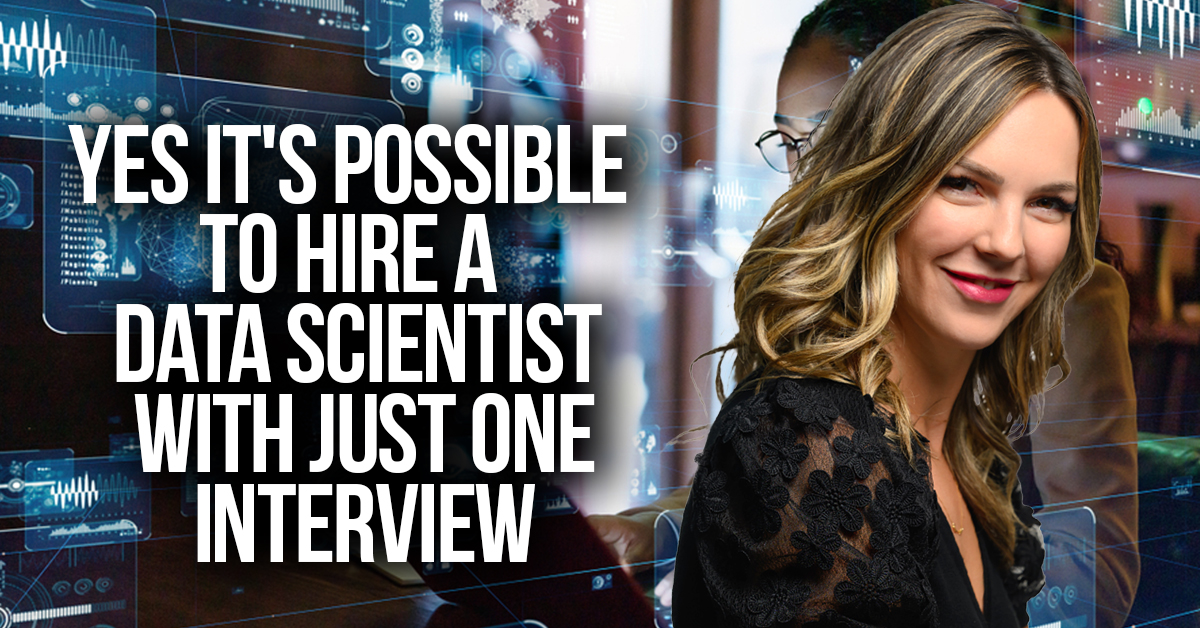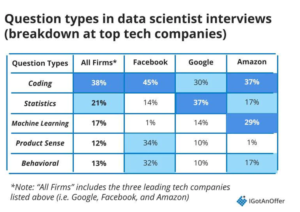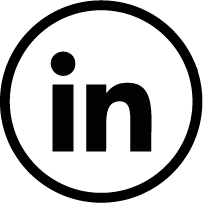
If you’ve ever had to go through the recruitment process for a tech position or you are the one recruiting, you would know how long-winded and tiresome it can be. A lot of recruiters and companies have worked hard to ensure that their hiring strategy is effective. However, are recruiters and companies wasting time and resources with their current hiring strategies? Could the process be sped up?
Let’s take a look at the typical interview process for a Data Scientist.
Table of Content:
- Typical Interview Process for Data Scientists
- Question types in Data Science Interviews
- Three areas of focus
- How to hire a data scientist with just one interview
- Data Science staffing
- FocusGTS Advice
Typical Interview Process for Data Scientists
The typical interview process for a data scientist is made up of six stages:
1. Pre-screen stage
During this phase, the candidate’s resume will be reviewed – in which the recruiter will look at their qualifications and their past experience to gauge if they are a potential match to the vacancy available. The recruiter will then book an initial prescreen and interview the candidate.
2. Phone Interview with the hiring manager
This will be an interview that can take up to 30 minutes to an hour in which the hiring manager will test the candidate on their foundational technical skills and if they would be a good fit for the team.
3. Take-home test
Once the potential candidates have been short-listed, they will then be sent a short assessment which will test the candidate’s ability on problem-solving and other related tasks. If the candidate has proven to be successful, the next step would be to convince them to come for an interview.
4. In-office/Zoom interview
This is typically the longest part of the interview process. The candidate will be asked to come into the office or dial in via Zoom for a day-long interview in which they will solve open-ended challenges and present their solutions. During this phase, the hiring team will examine the candidate’s capabilities in a natural work environment.
There is also the possibility of one more phone screen with a high-level VP or Senior Director.
5. Evaluating the candidate
At this stage, the hiring manager and other members of the team will evaluate the candidate by assessing the candidate’s technical, analytical, communication, problem-solving skills as well as their overall value to the company.
6. Offer and further communication
If you have decided on the candidate you wish to go ahead with, the next step is convincing them to be a part of the team. An offer letter will be sent and there will be a lot of back and forth before both parties are happy. If some candidates were not successful, there will be follow ups with them to provide personal feedback.
However, the interview process for Data Scientists and other tech experts differ depending on the company and job role. According to IGotAnOffer, they stated the interview process can consist of 3 overall stages which contain sub-stages:
- HR recruiter phone screen (~30 min)
- Technical screen (1-2 screens, 45-60 min)
- Onsite (5-6 interviews, 45-60 min each)
For many people, if they had first hand knowledge that this would be the interview process – they would be thrown off and highly reluctant to continue with their application.
Question types in Data Science Interviews
IGotAnOffer studied the three hyperscalers of today – Google, Facebook and Amazon. They analyzed 300+ questions from these big tech companies and boiled down the type of Data Science interview questions into five categories:
- Coding (38%)
- Statistics (21%)
- Machine learning (17%)
- Business-related (12%)
- Behavioral (13%)

Three areas of focus
When hiring a Data Scientist, the three areas of focus when interviewing a candidate are:
- Hard skills
- Soft skills
- Business and behavioral intelligence
The hard skills will consist of coding, statistics, data visualization and machine learning of the day-to-day tasks. The soft skills will focus on areas of communication, problem-solving, curiosity and overall work environment attitude. The business and behavioral intelligence will review the candidate’s business acumen, attitude towards challenges and past experiences.
If we refer back to the table created by IGotAnOffer, the five categories of question types in a Data Science interview all fall into the three areas of focus.
Hard skills:
- Coding
- Statistics
- Machine Learning
Soft skills:
- Behavioral
Business and Behavioral:
- Problem solving
- Product Sense
- Behavioral
So, if these three major tech companies have broken down their typical data science questions into 5 categories which fall into 3 areas of focus – is it possible to hire a data scientist with just one interview?
Yes, it is. Let me explain how
How to hire a data scientist with just one interview
If the typical interview process for a Data Scientist consists of an HR recruiter phone screen (~30 min), a Technical screen (1-2 screens, 45-60 min) and Onsite (5-6 interviews, 45-60 min each) – how can these all be merged so the applicant only has to go through one interview?
The initial phone screen that a candidate undergoes is mandatory to the start of the process. Most candidates will not regard this as an interview and are more than willing to take 30 minutes out of their day to do a phone screening. This along with the technical screen can be done together in conjunction with reviewing their resume.
The one actual interview stage should only be the onsite interview. During the onsite interview, which can either be a day or half a day can be made up of:
- Open-ended challenges
This will test the candidate’s coding, statistics, problem-solving and machine learning skills. The candidate will present their skillset and show their strengths and weaknesses. This will give the recruiter a better understanding of how they will handle the typical day-to-day tasks in the company.
This stage of the interview should be no longer than a few hours, as you want to replicate a typical day in the life of a Data Scientist. Regardless if the problem has been solved or not, your aim as the recruiter is to see how they approach the challenge and review their skillset.
Through this part of the day, the recruiter and other members of the team will have established the first area of focus: hard skills.
- Present, review and feedback
Once the open-ended challenge stage has been completed, the next stage is for the candidate to present their work. They will communicate and present to the team their approach to the problem in the way they did, their train of thought, explain their coding and how their output resonates with the business.
During this stage of the interview, the recruiter will gain a better understanding of the candidate’s level of hard skills, data intuition, problem-solving skills and overall characteristics.
At this point, the recruiter will have established all three main areas of focus: hard skills, soft skills and business and behavioral.
- Shadowing and peer review
As the hard skills section has been widely covered, the other areas of focus need more review. Soft skills and business/behavioral skills can only be reviewed in reality. Therefore, having the candidate shadow and peer review the team’s current day-to-day tasks for a few hours will allow the team to review their soft skills and business/behavioral skills.
The team can examine if the candidate is confident to give their advice, or push forward their own solution. They will also see how well they work with the current team and if they would be a good fit.
And just like that, you’ve been able to interview and possibly hire a Data Science with just one interview. One and done!
Data Science Staffing
With demand comes many applicants, and this can be a challenge for any company that is hiring. You have applicants who have the traditional education of studying Computer Science at University, but then you equally have proficient candidates who are successfully certified from BootCamps and online courses.
Naturally, as a company, your easiest option would pass the task over to your HR team to help you find the best candidate possible. However, most HR teams don’t specalize in IT, much less Data Science.
This makes the process for the potential candidates more frustrating, therefore having recruiters that have first-hand knowledge and understanding of the tech industry will not only give you the confidence in them to find your gold-standard new employee but also give the candidate more trust in the organization that they hope to be a part of.
FocusGTS Advice
To ensure you find the perfect Data Scientist for your company, we at FocusGTS advise you to take the next steps to improve your recruitment process.
- Simplify your recruitment process – long-winded recruitment processes can cause you to lose the perfect candidate that was right in front of your eyes, with 60% of candidates quitting job applicants that take too long.
- The right recruiter – As mentioned prior, it would be more valuable to have a tech recruiter who specializes in recruiting Data Science talent.
Taking into consideration these two small steps in your recruitment process will not only help you find the perfect Data Scientist but will also save you time and money.

